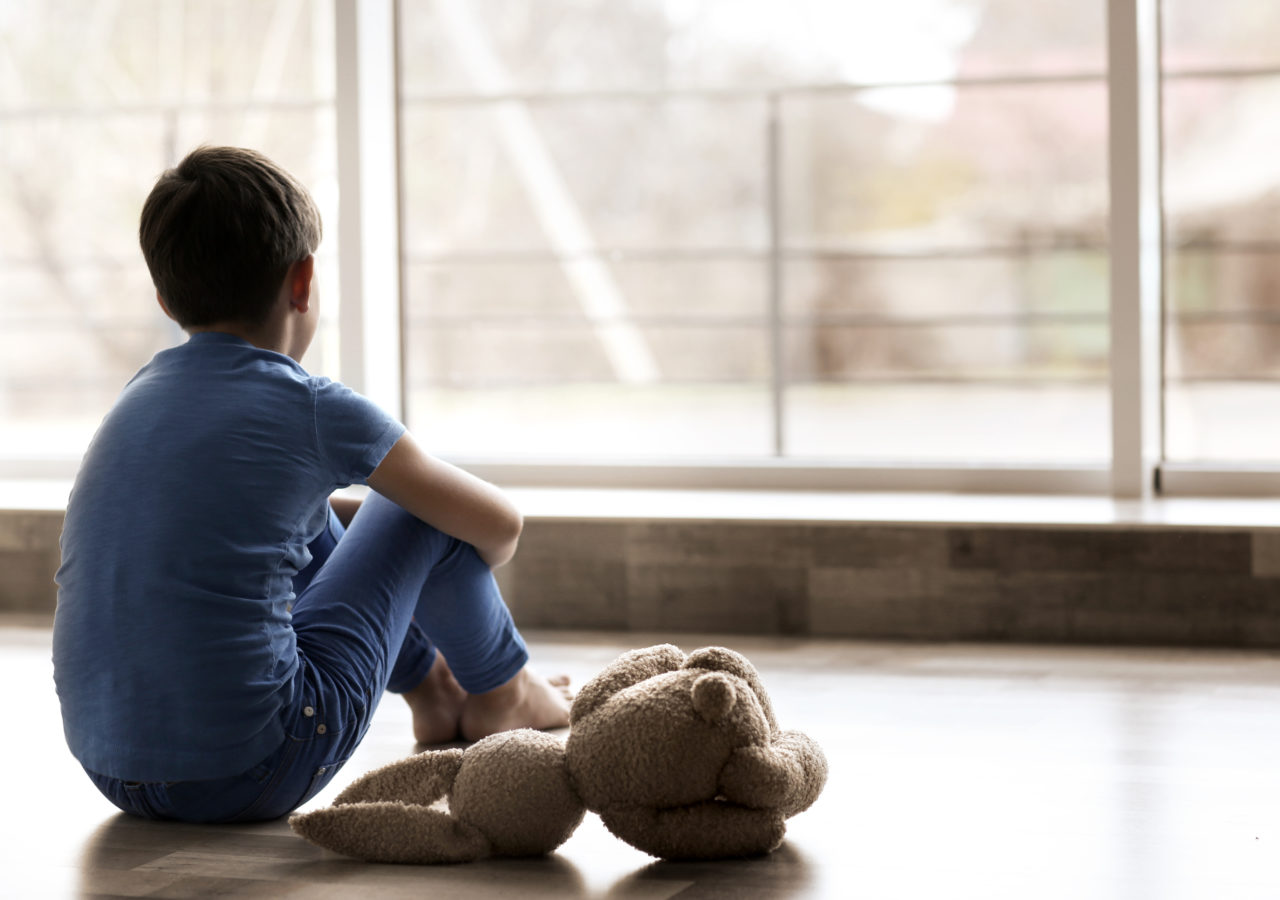The mental health charity MIND and the NHS provide a list of signs for parents and carers where children may be displaying symptoms indicative of depression or anxiety.

As we emerge from the Covid Pandemic and move back towards ‘normal’ pre 2020 life, UK Government data shows our children’s mental health has suffered over this period, with a general increase in anxiety levels between 2017-2021. This impact was even greater for children with special educational needs (SEN). During this period, parents of school age children reported behavioural and attention related difficulties in boys and more emotional difficulties in girls.
The Covid pandemic has been an exceptional time with many feeling a loss of control, fears around themselves of their loved ones getting sick or dying as well as financial losses and their corresponding impact on home and work life. There may have been more arguments at home between spouses or within the family which amplified the feelings of worry and insecurity.
It isn’t always easy to recognise if your child is suffering from a mental health problem like depression or anxiety and the extent is even more difficult to determine. It is even harder if you have been under increased stress or preoccupation yourself.
The mental health charity MIND and the NHS provide a list of signs for parents and carers where children may be displaying symptoms indicative of depression or anxiety. These two conditions can also commonly occur together.
Depression
While most people go through periods of low mood from time to time, this often passes quickly. Depression is a persistent feeling of sadness that lasts weeks or months. Signs of depression in children often include:
- sadness, or a low mood that does not go away
- being irritable or grumpy all the time
- not being interested in things they used to enjoy
- feeling tired and exhausted a lot of the time
- have trouble sleeping or sleep more than usual
- inability to concentrate
- less interaction with friends and family
- being indecisive
- not having much confidence
- eating less than usual or overeating
- talking about feeling guilty or worthless
- feeling empty or unable to feel emotions (numb)
- having thoughts about suicide or self-harming
- actually self-harming, for example, cutting their skin or taking an overdose
Some children have problems with anxiety as well as depression. Some also have physical symptoms, such as headaches and stomach aches. Problems at school can be a sign of depression in children and young people and so can problem behaviour.
Once you have recognised your child may be suffering with depression, there are some simple ways you can help them to help themselves:
- Help your child achieve good sleep. Getting good sleep can help to improve mood and increase energy levels. See Mind’s pages on coping with sleep problems for tips to help.
- Think about diet. Eating regularly and keeping blood sugar stable can make a difference to mood and energy levels. See the pages on food and mood for more tips.
- Encourage physical activity. See the pages on physical activity and your mental health for more information.
- Help them look after their hygiene. When experiencing depression, hygiene can feel really low priority. But small things, like taking a shower and getting fully dressed whether or not we’re going out of the house, can make a big difference to how we feel.
- Help them join a group. This could be anything from a community project, a sports team or a hobby group. The important thing is to find an activity they enjoy, or perhaps something they have always wanted to try, to increase motivation. Learning something new or even trying new food, can help boost mood and break unhelpful patterns of thinking and behaviour.
- Encourage them to volunteer. Volunteering in school, wider family or community, or just offering to help someone out, can make them feel better about themselves and less alone.
- Encourage your child to talk to you or someone you both trust. Being able to share their worries and struggles without fear of judgement can help them feel supported and less alone.
Anxiety
Children can feel anxious about different things at different ages and these worries are a normal part of growing up. Some children are more susceptible to feeling anxious than others.
Anxiety becomes a problem for children when it starts to get in the way of their everyday life and therefore impair their functioning whether physically or socially.
Anxiety in younger children can appear as:
- becoming irritable, tearful or clingy
- having difficulty sleeping
- waking in the night
- starting wetting the bed
- having bad dreams
In older children you may notice that they:
- lack confidence to try new things or seem unable to face simple, everyday challenges
- find it hard to concentrate
- have problems with sleeping or eating
- have angry outbursts
- have a lot of negative thoughts, or keep thinking that bad things are going to happen
- start avoiding everyday activities, such as seeing friends, going out in public or going to school
First and foremost, it’s important to talk to your child about their anxiety or worries. Reassure them and show them you understand how they feel.
If your child is old enough, it may help to explain what anxiety is and the physical effects it has on our bodies. It may be helpful to describe anxiety as being like a wave that builds up and then ebbs away again.
As well as talking to your child about their worries and anxiety, it’s important to help them find solutions.
For example, if your child is worried about going to a sleepover, it is natural to want to tell them not to go. However, this could mean your child feels that their anxiety will stop them from doing things.
It’s better to recognise their anxiety and suggest solutions to help them, so they can go to the sleepover with a plan in place.
Helping your child with their anxiety:
- teach your child to recognise signs of anxiety in themselves. This could be feelings of tension in the body, headaches or changes to their breathing
- encourage your child to manage their anxiety and ask for help when they need it
- encourage your child to speak to Allah and ask Allah for His help in times of worry
- children of all ages find routines reassuring, so try to stick to regular daily routines where possible
- if your child is anxious because of distressing events, such as a bereavement or separation, look for books or films that will help them to understand their feelings
- if you know a change, such as a house move, is coming up, prepare your child by talking to them about what is going to happen and why
- try not to become overprotective or anxious yourself
- practice simple relaxation techniques with your child, such as taking 3 deep, slow breaths, breathing in for a count of 3 and out for 3. You’ll find more guidance for helping children with anxiety on the Young Minds website
- distraction can be helpful for young children. For example, if they are anxious about going to nursery, play games on the way there, such as seeing who can spot the most red cars
- turn an empty tissue box into a “worry” box. Get your child to write about or draw their worries and “post” them into the box. Then you can sort through the box together at the end of the day or week
If your child’s anxiety is severe, persists, and interferes with their everyday life, it’s a good idea to get some help. Speak to your GP and they may be able to refer your child for talking therapies which have been proven to help.
If your child’s anxiety is affecting their school life, it’s a good idea to talk to their school as well.
If you’re in the UK, parents and carers can get help and advice about children’s mental health from Young Minds’ free parent helpline on 0808 802 5544, from Monday to Friday, 9.30am to 4pm.
There are two types of talking treatment recommended for anxiety and panic:
- Cognitive behavioural therapy (CBT) – this focuses on how your thoughts, beliefs and attitudes affect your feelings and behaviour, and teaches you coping skills for dealing with different problems.
- Applied relaxation therapy – this involves learning how to relax your muscles in situations where you normally experience anxiety
Whether your child is suffering with depression or anxiety or a combination of these, be there for your child but don’t worry, mental health problems are a common human experience and with the right support they can overcome it and develop tools to help in the future.
Here is a list of useful contacts you may wish to consider getting in touch with, particularly if you’re in the UK:
1. Action for Children
parents.actionforchildren.org.uk
Emotional and practical care for children, young people and families in England. Includes a parenting hub, information for foster and adoptive parents, and local services for families.
2. Anna Freud
annafreud.org/parents
Information for parents and carers about supporting a child or young person’s mental health and wellbeing. Includes a directory of free mental health services in local areas.
3. Anxiety UK
03444 775 774
07537 416 905 (textline)
anxietyuk.org.uk/get-help/helping-your-child
Advice, support and information for people who experience anxiety. Includes specific information for people supporting children and young people with anxiety.
4. Barnardo’s
barnardos.org.uk
Practical information and emotional support for children, young people and families. Includes specific information on mental health problems.
5. Council for Disabled Children
councilfordisabledchildren.org.uk
Information, support and advocacy for disabled children and young people, plus their families and carers.
6. Cruse Bereavement Support
0808 808 1677
cruse.org.uk/get-support/supporting-children-and-young-people
Supports people experiencing grief. Includes specific information for adults helping a child or young person who has lost someone.
7. Ethnic Minorities & Youth Support Team Wales
info@eyst.org.uk
eyst.org.uk
Provides services in Wales to support people between 11 and 25 from diverse ethnic backgrounds, plus their families. Includes support for health and wellbeing..
8. Gingerbread
0808 802 0925
gingerbread.org.uk
Information and support for single parent families. Provides a webchat and an online forum for single parents.
9. Kidscape
020 7823 5430
07496 682785 (WhatsApp textline)
parentsupport@kidscape.org.uk
kidscape.org.uk
Advice about bullying for young people, their parents, carers, and adults working with children. Provides a parent advice line, textline and email support for adults concerned about a child.
10. Mencap
0808 808 1111 (Learning Disability Helpline)
helpline@mencap.org.uk
mencap.org.uk
Advice, information and support for people with a learning disability. Offers local groups and an online community. Includes specific information for family and friends.
Mermaids UK
11. MindEd for Families
mindedforfamilies.org.uk/young-people
Information and advice on supporting young people’s mental health, created by experts and parents. Covers topics like parenting and mental health services.
12. National Autistic Society
autism.org.uk
Information, support and advocacy for autistic people, with dedicated sections for families and for education professionals. Includes information on school and children’s services, plus a Parent to Parent Emotional Support Helpline.
13. National Society for the Prevention of Cruelty to Children (NSPCC)
0800 800 5000
nspcc.org.uk
Information and support for children who have experienced abuse. Provides a helpline for adults concerned about a child, plus local services to help young people and families overcome abuse.
14. Papyrus HOPELINEUK
0800 068 41 41
07860 039967 (textline)
pat@papyrus-uk.org
papyrus-uk.org
Support and advice for people under 35 experiencing suicidal thoughts or finding it hard to cope. Provides support to anyone concerned about a young person


